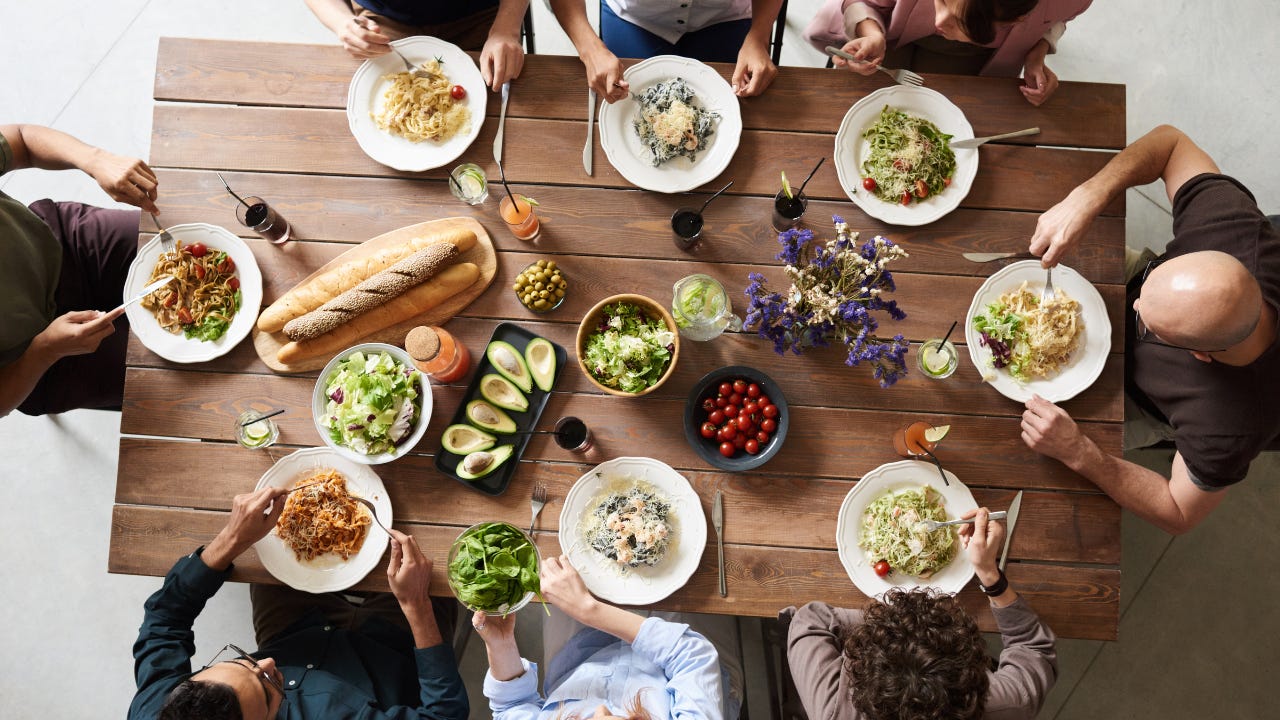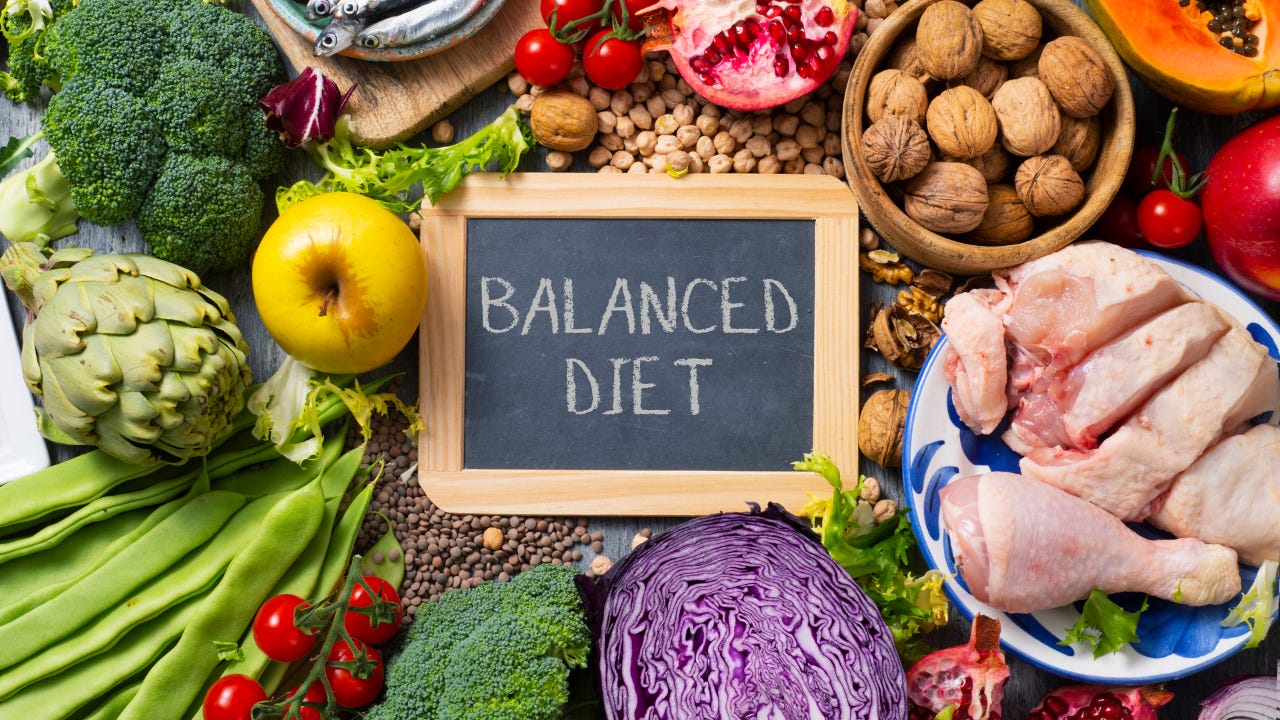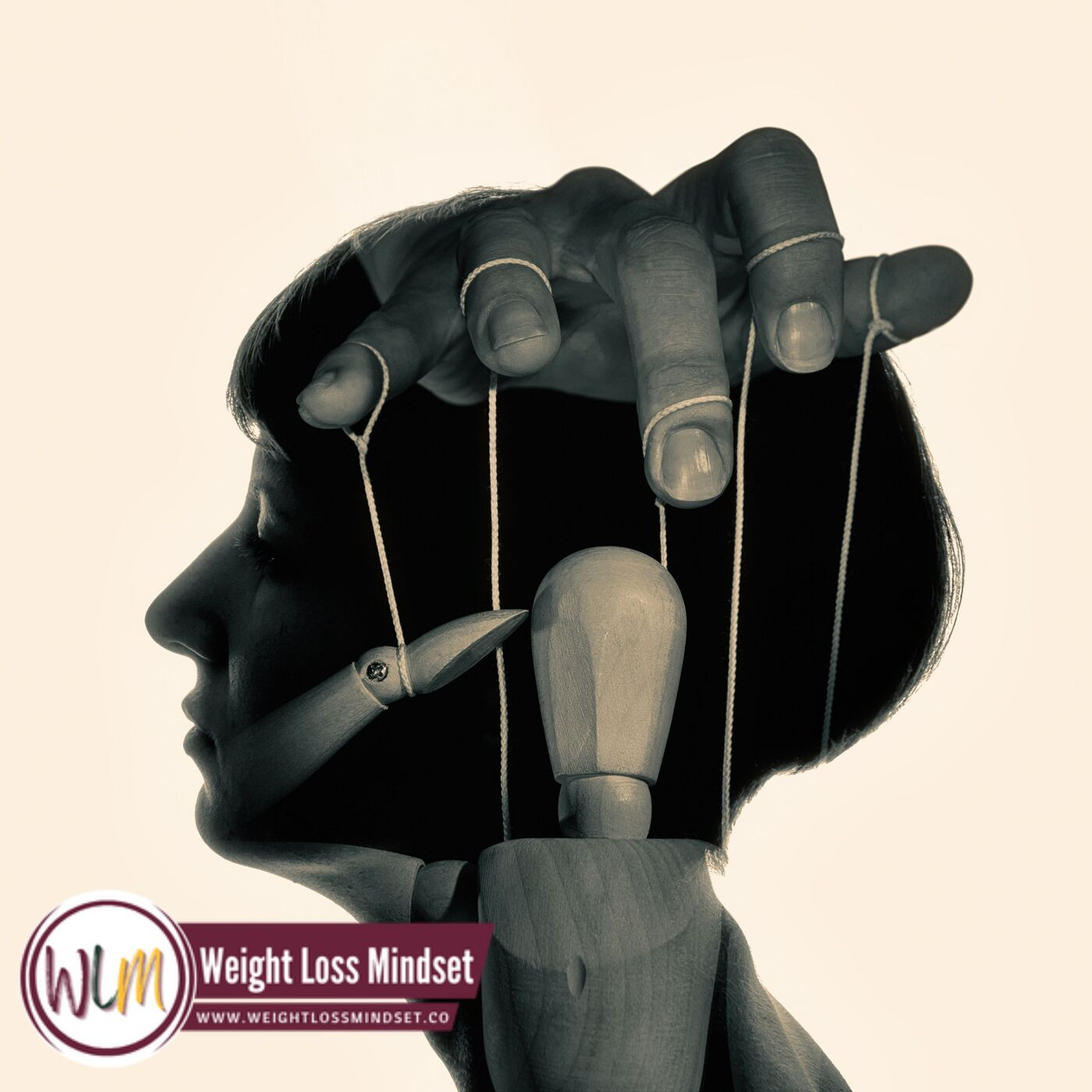Discover Weight Loss Mindset
Weight Loss Mindset

174 Episodes
Reverse
Show NotesSummary:In this episode of The Weight Loss Mindset Podcast, Rick Taylar delves into the transformative power of shifting from a restrictive diet mentality to embracing a holistic approach to nourishment.Nourishment is not just about feeding the body but also about enriching the mind and emotions through thoughtful and balanced eating practices. Rick discusses how restrictive diets can lead to a scarcity mindset, triggering overeating and fostering unhealthy cycles of weight fluctuation.By contrast, embracing nourishment involves understanding physical, emotional, and mental needs and responding to them with care. The episode highlights the importance of intuitive eating, recognizing emotional versus physical hunger, and the benefits of mindful eating practices.Rick advocates for building a sustainable and joyful relationship with food by integrating balance and variety into one’s diet, which not only supports physical health but also enhances emotional well-being and social connections.Key Takeaways:* Restrictive dieting often leads to a scarcity mindset and can perpetuate unhealthy eating behaviors.* Nourishing the body involves more than just eating; it requires an understanding of physical, emotional, and mental health needs.* Intuitive eating and understanding hunger cues are crucial for developing a healthy relationship with food.* Mindful eating helps in appreciating food fully, preventing overeating and enhancing satisfaction.* Embracing a balanced diet without strict restrictions promotes lasting weight management and overall well-being.* Food is not just sustenance but also a source of joy and a part of cultural and social interactions that enrich life.Resources:Books:"Intuitive Eating" by Evelyn Tribole and Elyse Resch – A comprehensive guide to breaking free from diet culture through intuitive eating."The Power of Habit" by Charles Duhigg – Insight into how habits work and how they can be transformed to foster health and well-being.Articles:"How to Make Mindful Eating Fun!" by the Center for Mindful Eating – Provides techniques and the philosophy behind eating mindfully."Food and Mood: How Your Diet Affects Your Mental Health" in the Verywell Fit Blog – Discusses the connection between what we eat and how we feel emotionally and mentally.Thank you for reading Weight Loss Mindset. This post is public so feel free to share it. This is a public episode. If you would like to discuss this with other subscribers or get access to bonus episodes, visit www.weightlossmindset.co
Show NotesSummaryIn today's episode of "Weight Loss Mindset," we busted common nutrition myths that could be sabotaging your weight loss efforts. From the misunderstood roles of fats and carbs to the real deal about protein, we uncovered the truth behind what constitutes a balanced diet.Key Takeaways:* Fats are essential for health and do not directly cause weight gain.* Carbohydrates are crucial for energy, but the type of carbs you eat matters.* Protein is important for everyone, not just those looking to bulk up.Resources:For further reading and to deepen your understanding of today's topic, check out:- "The Big Fat Surprise" by Nina Teicholz- "Good Calories, Bad Calories" by Gary TaubesWebsite:Healthy Eating in Real LifeThank you for reading Weight Loss Mindset. This post is public so feel free to share it.Subscribe for free to receive new posts and support my work. This is a public episode. If you would like to discuss this with other subscribers or get access to bonus episodes, visit www.weightlossmindset.co
Hey there, this is Rick Taylar.Here’s my latest Weight Loss Mindset Podcast.Please have a listen and leave any comments on the site.Show Notes:In this podcast episode, we delve deep into the concept of emotional eating, its triggers, and how to overcome it. We discuss the importance of understanding your emotional triggers, developing coping strategies, and cultivating mindfulness.We explore the journey of overcoming emotional eating, beginning with the identification of emotional triggers, developing coping strategies, and finally, cultivating mindfulness. The ultimate goal is to transform our relationship with food from being a source of emotional comfort to a source of nourishment.Key Takeaways:1. One of the most effective ways to identify your emotional eating triggers is to keep a detailed food and mood diary. This can be done either manually or with the help of dedicated apps designed for this purpose.2. Developing alternative coping strategies is crucial to achieving sustainable health and wellness goals. This can be achieved by replacing the habit of emotional eating with healthier alternatives such as physical activities or hobbies.3. Cultivating mindfulness is key to managing emotional eating. This can be achieved by dedicating a few minutes each day to mindful practices such as deep breathing or being present in everyday tasks.4. Emotional eating is often a response to stress, anxiety, boredom, or other difficult emotions. By practicing mindfulness, we can observe these emotions without getting caught up in them, allowing us to make more thoughtful choices about how we nourish ourselves.5. Transforming your relationship with food is a process that requires patience, self-compassion, and a commitment to ongoing growth and discovery.Resources:1. The Power of Mindful Eating2. 13 Ways to Stop Eating When You’re Bored3. A Mindful Approach to Emotional EatingThank you for reading Weight Loss Mindset. This post is public so feel free to share it. This is a public episode. If you would like to discuss this with other subscribers or get access to bonus episodes, visit www.weightlossmindset.co
Show NotesSummary:This episode dives deep into the transformative power of self-compassion on your weight loss journey. Host Rick Taylar guides you through the process of silencing your inner critic and cultivating a supportive inner champion. Learn how self-compassion can boost your motivation, improve your body image, and increase your chances of long-term success. Discover practical strategies to silence negativity, celebrate non-scale victories, and navigate setbacks with grace. Remember, weight loss is a journey, not a destination, and self-compassion is your key to making it a positive, empowering experience.Key Takeaways:* The Inner Critic is a Shadow Self: Recognize the voice of self-doubt and challenge its negativity. Replace it with affirmations and self-kindness.* Self-Compassion is Your Superpower: Treat yourself with the same understanding you'd offer a friend. It boosts motivation, improves body image, and reduces stress.* Cultivate Compassionate Habits: Practice mindfulness, engage in self-care, set realistic goals, and build a supportive community.* Celebrate Non-Scale Victories: Focus on increased energy, better sleep, and improved mood, not just the number on the scale.* Setbacks are Learning Opportunities: Forgive yourself, refocus on your "why," seek support, learn from the experience, and keep moving forward.* Believe in Yourself: You are worthy of love and support, no matter your size. Embrace self-compassion and create a sustainable path to a healthier, happier you.Additional resources to support your journey:Books:"Self-Compassion" by Dr. Kristin Neff"Radical Self-Love" by Gala Darling"The Body Positive" by Meghan Jayne Crabbe"Intuitive Eating" by Evelyn Tribole and Elyse ReschWebsites:National Eating Disorders Association (NEDA): https://www.nationaleatingdisorders.orgThe Body Positive: https://thebodypositive.orgAssociation for Size Diversity & Health (ASDAH): https://www.asdah.orgApps:Headspace: https://www.headspace.comCalm: https://www.calm.comInsight Timer: https://insighttimer.comRemember: Weight loss is a personal journey. Take what resonates with you, leave what doesn't, and most importantly, be kind to yourself every step of the way!Thanks for reading Weight Loss Mindset! Subscribe for free to receive new posts and support my work. This is a public episode. If you would like to discuss this with other subscribers or get access to bonus episodes, visit www.weightlossmindset.co
Show Notes:Summary:In this insightful episode, host Rick Taylar explores the intriguing connection between sleep deprivation and weight gain. We delve deep into how lack of quality sleep could be sabotaging our weight loss efforts and mental and physical health. The discussion further covers strategies to improve sleep and thus aid in weight management and addresses potential setbacks and challenges and ways to overcome them.Key Takeaways:1. Importance of Good Sleep: Sleep is essential for overall health, from mental well-being and cognitive functions to physical health, including growth and immune system function. 2. Sleep Deprivation and Weight Gain: Lack of sleep can disrupt the balance of hunger and fullness hormones (ghrelin and leptin), leading to increased appetite and contributing to weight gain.3. Strategies for Better Sleep: Improving sleep involves consistency in sleep schedules, creating an ideal sleep environment, and incorporating relaxation techniques for quality sleep.4. Success Stories: Personal anecdotes highlight the positive impact of prioritizing sleep on weight loss, reiterating the necessity of good sleep. 5. Addressing Challenges: Several factors can prevent good sleep including shift work, stress and health conditions. There are solutions and ways to manage these, including making small, achievable changes.6. Persistence is Key: In any weight loss journey, persistence and a gradual approach are important. This includes making sleep an integral part of this journey. Remember, counting sheep is as important as counting calories in the route to weight loss. Sleep well, stay healthy, and keep listening to the 'Weight Loss Mindset' podcast to unlock more secrets on your journey to a healthier, happier you!Thanks for reading Weight Loss Mindset! Subscribe for free to receive new posts and support my work. This is a public episode. If you would like to discuss this with other subscribers or get access to bonus episodes, visit www.weightlossmindset.co
Show NotesSummary:Thank you for tuning into today's episode! Below you'll find the key points we covered, along with strategies to help you navigate the discomforts of weight loss. We've also included some valuable resources for further reading and learning. And remember, we'd love to hear your stories and questions - share them with our podcast community and let's support each other on this journey!Key Points Discussed:* Understanding Discomfort in Weight Loss: Discomfort is a normal part of the weight loss journey, stemming from changes in diet, exercise, and lifestyle.* Physical Discomfort: Adjusting to new eating habits can cause temporary physical discomforts like bloating or gas. Gradual dietary changes and staying hydrated can ease the transition.* Dealing with Withdrawal: Reducing caffeine and sugar intake can lead to withdrawal symptoms. Patience and gradual reduction can help manage these symptoms effectively.* Exercise-Induced Discomfort: Starting a new exercise routine often leads to muscle aches, which are signs of progress and muscle engagement.* Mental and Emotional Discomfort: Changes in diet can affect dopamine levels, leading to mood swings and cravings. A positive mindset and emotional support are key to managing these changes.Strategies for Dealing with Discomfort:* Mindfulness: Stay aware of your body and mind’s reactions to change.* Realistic Goal Setting: Set achievable goals to ensure steady progress.* Support Systems: Lean on friends, family, or online communities for support.* Patience and Persistence: Remember that lasting change takes time.* Visualization: Regularly visualize achieving your goals to stay motivated.Additional Resources:Books:"Atomic Habits" by James Clear - A guide on building good habits and breaking bad ones."Mindset: The New Psychology of Success" by Carol S. Dweck - Explores the power of mindset in achieving personal goals.Websites:https://www.eatingwell.com/ - Offers guidance on healthy eating habits.https://www.mindful.org/ - Provides resources on mindfulness and meditation.Apps:MyFitnessPal: A tool for tracking diet and exercise.Headspace: An app offering guided meditation and mindfulness practices.Community Engagement:We want to hear from you! Share your journey, challenges, and victories with us. Your story could be the inspiration someone else needs.Stay Connected:Don’t forget to subscribe to The Weight Loss Mindset Newsletter for more insights and inspiration. Join us next week as we explore more topics. Until then, keep moving forward and embrace your journey!Thanks for reading Weight Loss Mindset! Subscribe for free to receive new posts and support my work. This is a public episode. If you would like to discuss this with other subscribers or get access to bonus episodes, visit www.weightlossmindset.co
Show NotesEpisode Summary:In this episode, we got into the fascinating world of cravings, exploring their biological, hormonal, and emotional roots.We discussed how cravings differ from hunger, the impact of hormones like ghrelin and leptin, and how our emotional state influences our food choices.The episode also provided practical strategies for managing cravings through mindfulness, healthy substitutions, and portion control, emphasizing the importance of understanding and responding to our body's signals.Key Takeaways:* Cravings vs. Hunger: Understanding the difference is crucial. Hunger is a physical need for food, while cravings are often specific and tied to emotional or hormonal triggers.* Hormonal Influence: Hormones like ghrelin and leptin play significant roles in regulating hunger and cravings, affected by factors like stress and the menstrual cycle.* Emotional Eating: Emotions can strongly influence our eating habits, leading to specific food cravings.* Management Strategies: Mindfulness, recognizing emotional triggers, portion control, and healthy substitutions are effective ways to manage cravings.Resources for Further Reading and Related Podcasts:"The Hungry Brain" by Stephan J. Guyenet"Mindful Eating" by Jan Chozen BaysPodcast: "The Psychology of Eating"Article: "9 Hormones That Affect Your Weight — and How to Improve Them" We love hearing from you!Share your experiences or tips on managing cravings with our community.Your insights could be a beacon of inspiration for someone else. And if you found this episode helpful, don't forget to subscribe for more content.We're here to explore this journey of wellness together.Thank you for reading Weight Loss Mindset. This post is public so feel free to share it.Enjoy a Healthy Life!,RickP.S.We’re expanding in 2024 with new podcasts, new courses, and a whole new look! Keep in touch ;) This is a public episode. If you would like to discuss this with other subscribers or get access to bonus episodes, visit www.weightlossmindset.co
Show NotesHosted by Rick TaylarEpisode Overview:In this enlightening episode, Rick Taylar delves into the complexities of finding true motivation on your weight loss journey.He explores the psychological aspects, the power of personal 'why', the importance of prioritizing goals, and the role of self-kindness in the journey.Key Highlights:The Psychology of Weight Loss Motivation* Understanding the challenge of staying motivated.* Exploring mental barriers and the emotional landscape of weight loss.* Accepting change and discomfort as part of the journey. Discovering Your 'Why'* Reflecting on personal reasons for weight loss.* Discussing common motivations like health, self-image, and physical wellbeing.* Strategies to keep your 'why' as a guiding beacon during challenges.Prioritizing Your Weight Loss Goals* Making lifestyle changes a priority without overwhelming yourself.* Balancing health goals with life's other responsibilities.* Practical tips for integrating weight loss into daily life.* Inspiring real-life stories on prioritizing health.Embracing the Journey with Kindness* Learning and adapting without self-judgment.* Viewing setbacks as part of the process and opportunities for growth.* The importance of positive self-talk and visualization in weight loss.Closing Thoughts:Rick offers a motivational message emphasizing the uniqueness of each weight loss journey and the importance of patience, kindness, and consistent forward movement.Listeners are encouraged to share the episode and subscribe for more inspiring content.Please join us by subscribing and follow us on social media.Remember, every step counts on your journey to health and wellness.Let's keep moving forward together!Rick TaylarWeight Loss MindsetP.S. - Please share this podcast with others and to social media This is a public episode. If you would like to discuss this with other subscribers or get access to bonus episodes, visit www.weightlossmindset.co
In this enlightening episode, we journeyed through the world of mindful eating, exploring its essence, benefits, practical applications, and solutions to common challenges.Key Takeaways:Defining Mindful Eating:Mindful eating is about being fully present and engaged with our eating experiences. It's a practice that focuses on how we eat, rather than what we eat, distinguishing it from traditional dieting approaches.Mental and Physical Benefits:Practicing mindful eating can lead to significant stress reduction, improved emotional regulation, and a more joyful mood. Physically, it enhances digestion, aids in nutrient absorption, and supports healthy weight management.Practical Tips for Incorporation:Simple steps like eating without distractions, chewing slowly, and being attentive to hunger and fullness cues can significantly enhance the mindful eating experience.Appreciating the sensory experiences of food and incorporating mindfulness exercises into our eating routines are other effective strategies.Overcoming Challenges:Busy schedules and emotional eating are common barriers to mindful eating. Addressing these challenges can involve dedicating specific meals to mindful eating and recognizing emotional triggers.Replacing emotional eating habits with healthier alternatives like meditation or a quick walk can be transformative.Thank you for joining me on this journey.Here's to eating mindfully and living joyfully!Rick TaylarWeight Loss Mindset P.S. Keep an eye out for our upcoming podcast related to mindful eating and wellness. Details will be shared on our social media channels and newsletter. This is a public episode. If you would like to discuss this with other subscribers or get access to bonus episodes, visit www.weightlossmindset.co
Show Notes:Summary: In this episode of the Weight Loss Mindset podcast, host Rick Taylar guides listeners through a comprehensive journey of weight loss, focusing on maintaining motivation and embracing a holistic transformation. The discussion emphasizes identifying personal motivations, prioritizing health, learning from setbacks, establishing sustainable routines, and building a supportive network. Special attention is given to celebrating small successes and empowering oneself with knowledge. The episode culminates in a powerful call to visualize and achieve one's weight loss goals, reinforcing the idea that every step forward is a stride towards a healthier and more fulfilled self. This episode is not just about shedding pounds; it's about nurturing the mental and emotional shifts necessary for lasting change.Key Takeaways:* Discover Your 'Why' for Weight Loss: Deeply reflect on your core motivation, whether it's for better health, improved self-esteem, or overcoming personal challenges.* Make Weight Loss a Priority: Treat your health as a prime focus, restructuring routines and lifestyle to support your well-being.* Learn from Setbacks: View any setbacks as opportunities to understand your body and mind better, rather than as failures.* Create a Sustainable Routine: Develop and adhere to a routine that aligns with your lifestyle, turning ambitious goals into daily, manageable actions.* Foster Support and Accountability: Engage with friends, family, or online communities for support and accountability, essential for maintaining momentum.* Celebrate Every Victory: Acknowledge and rejoice in every small achievement to maintain motivation and momentum on your journey.* Educate Yourself: Gain knowledge about diet and exercise to make informed decisions, tailoring your fitness regime effectively.* Visualize Success: Regularly imagine achieving your goals, aligning subconscious aspirations with conscious efforts.Closing Thoughts: This episode is a reminder that weight loss is a journey of both physical and mental transformation. It's about setting powerful emotional anchors, prioritizing health, and embracing each phase with positivity and determination. Remember, every small step is a part of a larger, transformative journey towards a healthier, happier you.PS… If you’re enjoying Weight Loss Mindset, will you take 6 seconds and forward this edition to a friend? It goes a long way in helping us grow the newsletter (and bring more and more help & compassion for folks on their weight loss journey). This is a public episode. If you would like to discuss this with other subscribers or get access to bonus episodes, visit www.weightlossmindset.co
Show Notes:SummaryIn this episode of the Weight Loss Mindset podcast, host Rick Taylar explores the crucial role of mindset in achieving sustainable weight loss, especially for busy individuals. Rick emphasizes that weight loss is not just a physical journey but a mental one, where overcoming mental barriers is key. He discusses the pitfalls of perfectionism, the illusion of quick fixes, the importance of addressing emotional eating, the drawbacks of comparison, the underrated role of sleep, and the limitations of focusing solely on the scale. These insights aim to guide listeners towards a balanced, healthy approach to weight loss that complements their busy lifestyles.Key Takeaways* The Perfectionist Trap: Avoid an 'all-or-nothing' mentality. Embrace flexibility and balance in your diet and exercise to prevent stress and burnout.* The Quick-Fix Obsession: Focus on sustainable, gradual changes rather than quick, fleeting solutions. Patience and long-term thinking are crucial.* Addressing Emotional Eating: Recognize and find healthier coping strategies for emotional triggers that lead to overeating.* Avoiding The Comparison Game: Focus on your unique journey and personal achievements instead of comparing with others.* The Power of Sleep: Prioritize sleep for its significant impact on hunger, cravings, and overall well-being.* Beyond the Scale: Consider non-scale indicators like clothing fit, energy levels, and well-being as measures of progress.Next Episode PreviewStay tuned for practical strategies to overcome these mindset barriers, with insights and tips for a transformative weight loss journey that enhances overall quality of life.Links and Resources* Free 5-Day Emotional Eating Mistakes Course: wlmind.com/eecRemember to subscribe for more insightful episodes on transforming your relationship with food and achieving a healthy, balanced lifestyle. This is a public episode. If you would like to discuss this with other subscribers or get access to bonus episodes, visit www.weightlossmindset.co
Show Notes:Summary: This episode delves into the effectiveness and role of weight loss supplements, advocating for a balanced and holistic approach to weight loss and health.Key Takeaways:* Weight loss supplements can offer minor support but are not standalone solutions to weight loss.* The importance of addressing the underlying causes of weight gain, like diet, exercise, and stress, is paramount.* Adopting a holistic lifestyle change, which may include supplements as a supportive element, is key to achieving and maintaining healthy weight loss. This is a public episode. If you would like to discuss this with other subscribers or get access to bonus episodes, visit www.weightlossmindset.co
Show NotesSummary:In this insightful episode of the Weight Loss Mindset Podcast, host Rick Taylar delves into the intricate relationship between stress, weight gain, and overall health. He emphasizes the importance of learning effective coping mechanisms to handle stress and pressure, as it is inevitable in today’s fast-paced society. Rick provides practical advice and strategies, including the significance of self-care, maintaining a positive outlook, and understanding the mind-body connection. By the end of the episode, listeners are equipped with the knowledge and tools to manage stress, make healthier choices, and progress on their weight loss journey.Key Takeaways:Self-Care is Crucial: Adopting a healthy diet and regular exercise routine forms the foundation of physical and mental well-being. These practices help in building resilience against stress and its negative effects on the body.Develop Coping Skills: Learning and practicing healthy coping mechanisms, such as engaging in physical activities, journaling, and avoiding harmful habits like excessive alcohol consumption or emotional eating, are essential in managing stress effectively.Maintain a Positive Outlook: Cultivating a positive mindset and practicing gratitude can significantly reduce stress levels and its impact on your body, helping in maintaining a healthy weight.Keep Things in Perspective: Staying balanced and keeping things in perspective, especially during high-pressure situations, contributes to better decision-making and stress management.Mind-Body Connection: Understanding and working with the connection between your mind and body can transform negative emotions into positive ones, aiding in stress reduction and promoting a sense of calmness.Practice Makes Perfect: Regularly practicing these strategies and being mindful of your reactions to stress ensures that you are better prepared to handle pressure, leading to a healthier lifestyle and aiding in weight loss.By incorporating these strategies into your daily routine, you can navigate through stress with ease, make healthier choices, and stay on track with your weight loss goals. This is a public episode. If you would like to discuss this with other subscribers or get access to bonus episodes, visit www.weightlossmindset.co
Show Notes for the Weight Loss Mindset Podcast with Rick TaylarSummary:In this insightful episode, Rick Taylar delves into the complex relationship between our subconscious mind and weight loss. He highlights how our subconscious can harbor deep-seated habits and identities that inadvertently lead us to resist weight loss or regain weight after losing it. By understanding and addressing these psychological barriers, individuals can embark on a more effective and lasting weight loss journey.Key Takeaways:The Identity Trap: Long-term overweight individuals often develop coping mechanisms or identities tied to their weight, making the prospect of losing weight synonymous with losing their identity.Questioning Self-Worth: Some people subconsciously feel they don't deserve a "perfect" life, viewing their inability to lose weight as a justifiable imperfection amidst their other achievements.Emotional Attachment to Food: For many, food transcends its nutritional value and becomes a symbol of love, security, or stability, creating an unhealthy emotional reliance.The Control Dilemma: Issues with control, especially for those who have experienced strict food rules, can manifest in resistance to dieting, perceived as relinquishing control.Subconscious Roadblocks: Recognizing and understanding the psychological barriers stored in our subconscious is crucial for successful, long-term weight loss.Commitment to Change: Lasting weight loss requires a deep commitment to change, not just in diet, but in addressing underlying emotional and psychological patterns. This is a public episode. If you would like to discuss this with other subscribers or get access to bonus episodes, visit www.weightlossmindset.co
Show Notes: Weight Loss Mindset Podcast with Rick TaylarSummary:In this episode, Rick Taylar delves into the profound connection between mental stress and weight. He highlights the challenges of emotional eating, the role of cortisol in weight gain, and the impact of modern-day stressors. The episode provides insights into the continuous cycle of stress, emotional eating, and weight gain, offering evidence-based solutions to break this cycle and foster a healthier relationship with food.Key Takeaways:Mental Stress and Weight: Chronic mental stress is a significant factor in weight issues, acting as a barrier to a healthier life. It not only affects mental well-being but also has physical and emotional repercussions. Emotional Eating: Many individuals resort to food for comfort during stressful times, leading to weight gain. This behavior is often driven by emotions rather than hunger, resulting in overeating and feelings of guilt and regret. Role of Cortisol: Chronic stress leads to the release of cortisol, a hormone that signals the body to replenish energy. Elevated cortisol levels can increase appetite and fat storage, especially around the abdomen. Modern-Day Stressors: Factors like work pressure, financial worries, and social media contribute to elevated stress levels, leading to a cycle of overeating and weight gain. Breaking the Cycle: Recognizing the relationship between stress, emotional eating, and weight gain is the first step towards breaking this harmful cycle. Adopting strategies like setting boundaries, fostering positive relationships, and practicing mindfulness can help manage stress and curb emotional eating. Solution Frameworks: Evidence-based strategies like Cognitive-Behavioral Therapy (CBT) and mindful eating practices can help individuals develop a healthier relationship with food and effectively manage stress.Stay tuned for more insights and strategies to lead a healthier, more balanced life! This is a public episode. If you would like to discuss this with other subscribers or get access to bonus episodes, visit www.weightlossmindset.co
Show NotesSummary:In this episode, Rick Taylar delves into the profound impacts of stress on our bodies and minds, exploring its intricate relationship with weight loss. Stress, often a silent and omnipresent entity, significantly influences our health, emotions, and overall well-being. The episode provides a comprehensive exploration of stress, from its basic nature to its profound effects on body functioning and its subtle contribution to weight gain. Rick offers insights into practical and scientifically proven strategies to alleviate stress, aiming to empower listeners to regain control of their lives and embrace a balanced, joyful existence.Key Takeaways:Understanding Stress:Stress is a natural response to any demand or threat, manifesting in acute or chronic forms. It triggers the “fight or flight” response, a survival mechanism that can lead to wear and tear on our bodies when activated repeatedly.Effects of Stress on the Body:Stress can weaken the immune system, disrupt digestion, elevate blood pressure, and is a silent contributor to chronic diseases like diabetes and heart disease. It operates primarily through cortisol and adrenaline, disrupting sleep, appetite, and mood when prolonged.Stress and Weight Loss:Elevated cortisol levels due to stress can lead to cravings and stress-induced eating, hampering weight loss goals. Stress slows metabolism, acting as an invisible anchor, and affects eating patterns, creating a cycle of unhealthy eating behaviors.Understated Effects of Stress:Stress infiltrates emotional well-being, cognitive functioning, sleep quality, and interpersonal relationships. It can cause emotional fluctuations, disrupt focus, and strain relationships, impacting happiness and health.Strategies to Alleviate Stress:Cultivating a resilient mindset through Cognitive-Behavioral Strategies and Mindfulness, making lifestyle adjustments like a balanced diet and regular exercise, and seeking professional help are crucial in reducing stress. Digital resources like HeartMath, Calm, and Headspace can also aid in managing stress effectively.Building Supportive Connections:Establishing supportive relationships and surrounding oneself with positive, empathetic people acts as a fortress against daily stressors, contributing to a stress-free life. This is a public episode. If you would like to discuss this with other subscribers or get access to bonus episodes, visit www.weightlossmindset.co
Show NotesSummary:In this enlightening episode, Rick Taylar delves deep into the psychology of overeating, emphasizing that the solution isn't just about what we eat, but how we think about food. Through a series of actionable insights, Rick guides listeners on a transformative journey towards mindful eating, helping them redefine their relationship with food.Key Takeaways:Mindful Eating: In our fast-paced world, we often eat mindlessly, missing out on the true essence of our meals. By being present and savoring each bite, we can better understand our hunger signals and eat just what we need.Trigger Foods: Everyone has specific snacks that can derail their health journey. Recognize these foods, and have healthier alternatives ready to combat those cravings.Balanced Indulgence: Total restriction can lead to overindulgence. It's essential to find a balance and occasionally treat ourselves without guilt.Portion Control: Move away from eating directly from packages. Using plates or bowls can help in visual portion control, making us more aware of the quantity we consume.Stress-Free Eating: Stress often drives us to overeat. Incorporating relaxation techniques like yoga or meditation can help break this cycle.Fiber-Rich Foods: Incorporating fiber-rich foods in our diet can keep us satiated for longer, preventing unnecessary snacking.Remember, the journey to a healthier relationship with food is not about strict diets but about understanding our habits, mindset, and making conscious choices. Embrace the journey and transform your relationship with food! This is a public episode. If you would like to discuss this with other subscribers or get access to bonus episodes, visit www.weightlossmindset.co
Show NotesSummary:Rick Taylar delves into the complex relationship between our emotions and food choices. This episode unravels the intricate dance of emotional eating and offers insights into understanding and managing the tug-of-war between feelings and food. Discover the tools and strategies to foster a resilient mindset and re-orchestrate a harmonious relationship with food and feelings.Key Takeaways:Embracing DiscomfortEmotional eating often stems from avoiding uncomfortable feelings.Emotions are indicators, not invaders. Affirmation: "I acknowledge all my emotions, recognizing them as an essential facet of my existence."Challenge yourself to pause and reflect before succumbing to emotional eating.The Broccoli Litmus TestDifferentiate between emotional cravings and genuine hunger.If a plain plate of broccoli doesn’t appeal in a moment of “hunger,” you’re likely eating for emotional reasons.Dive into DistractionsCounteract mindless munching with engaging activities.Consider adopting a new hobby, diving into a book, or creating memories with loved ones.Treat these distractions as opportunities for growth and new experiences.The Power of The Pen: JournalingTrack eating patterns in relation to emotions to uncover triggers.Recognize patterns and anticipate potential pitfalls.Reflect on your personal story to understand and make better food choices.Cultivating ResilienceDevelop emotional fortitude to prevent being swayed by every emotional gust.Techniques include gaining perspective, recharging regularly, letting go of past regrets, and considering therapy methods like Cognitive Behavioral Therapy.Resilience is about understanding, balance, and equipping oneself with the right tools.Community EncouragementShare personal journeys, successes, and challenges in mastering emotional eating.Engage in continuous learning, adapting, and growing in understanding emotional eating.Share your own experiences and insights on emotional eating. Let's embark on this journey of self-awareness and growth together. What steps will you take to master your relationship with food and feelings? This is a public episode. If you would like to discuss this with other subscribers or get access to bonus episodes, visit www.weightlossmindset.co
Show NotesSummary:Rick Taylar delves deep into the sugar epidemic, revealing its hidden impact on our health and how it's subtly integrated into our daily diet. This episode breaks down the steps to conquer sugar cravings, offering a pragmatic approach to reducing sugar intake gradually, the importance of consuming whole foods, and how to outsmart sugar’s sneaky disguises on product labels. Armed with knowledge, listeners will be better equipped to navigate the sugar minefield and make healthier choices.Key Takeaways:1. The Gradual Transition:Cutting sugar abruptly often backfires due to the brain's scarcity response.Gradual reduction is key. Small changes, like reducing sugar in coffee, can make a significant impact over time. Adopting a patient, step-by-step approach can reshape habits with less internal resistance.2. One Habit at a Time:Tackling one sugar habit over six weeks can lead to sustainable changes.A slow, methodical reduction in sugar, like reducing sugar in coffee over several weeks, is more effective than sudden drastic changes.This approach builds confidence, paving the way for future positive habits.3. Power Up with Protein:Protein acts as a hunger regulator, ensuring prolonged satiety.Pairing carbohydrates with protein can stabilize blood sugar levels, preventing quick energy crashes.Understanding the difference between simple and complex carbs can aid in making healthier meal choices.4. Embrace Nature’s Candies:Whole fruits are nutrient-rich, offering natural sugars with the benefit of fiber.Consuming ripe fruits and fiber-rich options like apples and berries can satiate sweet cravings healthily.The natural balance of sugar, fiber, and nutrients in fruits keeps you fuller for longer.5. Decoding Hidden Sugars:Sugar is often disguised under different names on product labels.Being a vigilant consumer means reading and understanding nutritional labels beyond just the calorie count.Knowledge empowers individuals to make healthier food choices amidst misleading marketing.6. Timing is Everything:Post-workout is an ideal time for a little sugar as muscles are ready to soak up glucose.Syncing sugar intake with physical activity ensures the body uses sugar efficiently.Enjoying a small treat, in moderation, after exercise can benefit muscle recovery and energy levels.7. Reflect and Refine:Journaling helps identify patterns in sugar cravings and consumption.Documenting the journey provides insights into triggers and successful strategies. Embracing both successes and setbacks through reflective writing can offer encouragement and insights for continued growth. This is a public episode. If you would like to discuss this with other subscribers or get access to bonus episodes, visit www.weightlossmindset.co
Show NotesSummary:Rick Taylar introduces listeners to Intermittent Fasting (IF) in this episode of the Weight Loss Mindset podcast. He emphasizes that IF is not just another diet trend but a shift in how you approach eating, aligning with the body's natural rhythm. The episode dives deep into the essence and benefits of intermittent fasting, backed by heartwarming success stories, the science behind it, and practical tips for embarking on this journey.Key Takeaways:Intermittent Fasting is Unique: Unlike other diet trends, intermittent fasting is a shift in eating habits that taps into the body's natural rhythm.Success Stories Abound: Many have found renewed hope and a fresh start through intermittent fasting.Multifaceted Benefits: IF offers a range of benefits, from weight loss to enhanced mental clarity and the magic of autophagy, which is the body's natural 'cleanup crew' during fasting windows.Challenges are Part of the Journey: While there might be temptations and challenges along the way, they are opportunities to learn and grow.Holistic Approach to Health: Intermittent fasting is about embracing a comprehensive approach to health, cherishing moments of clarity, and celebrating every victory.Your Journey is Unique: Every individual's fasting journey is different, and it's essential to approach it with dedication, patience, and self-love. This is a public episode. If you would like to discuss this with other subscribers or get access to bonus episodes, visit www.weightlossmindset.co





















